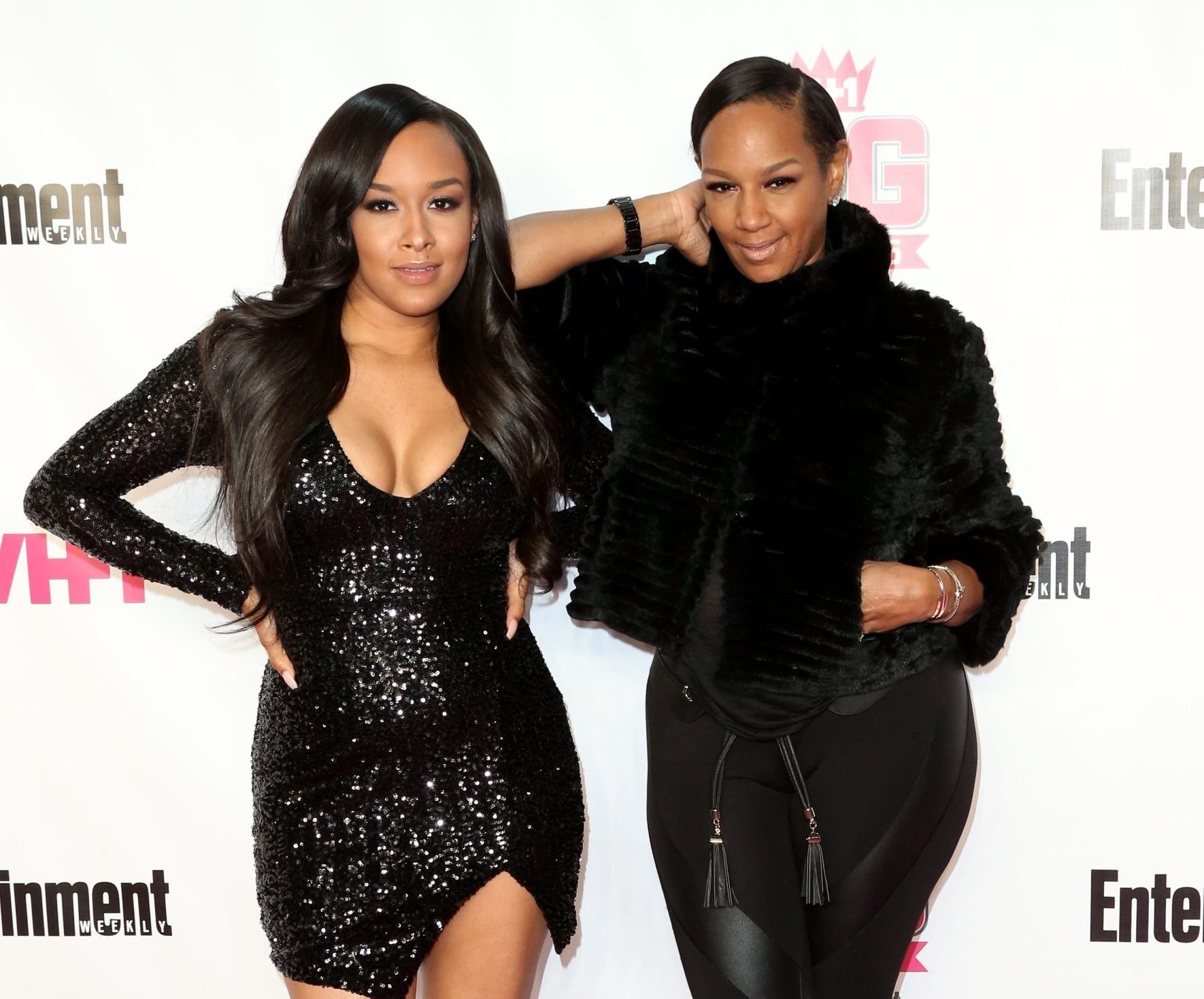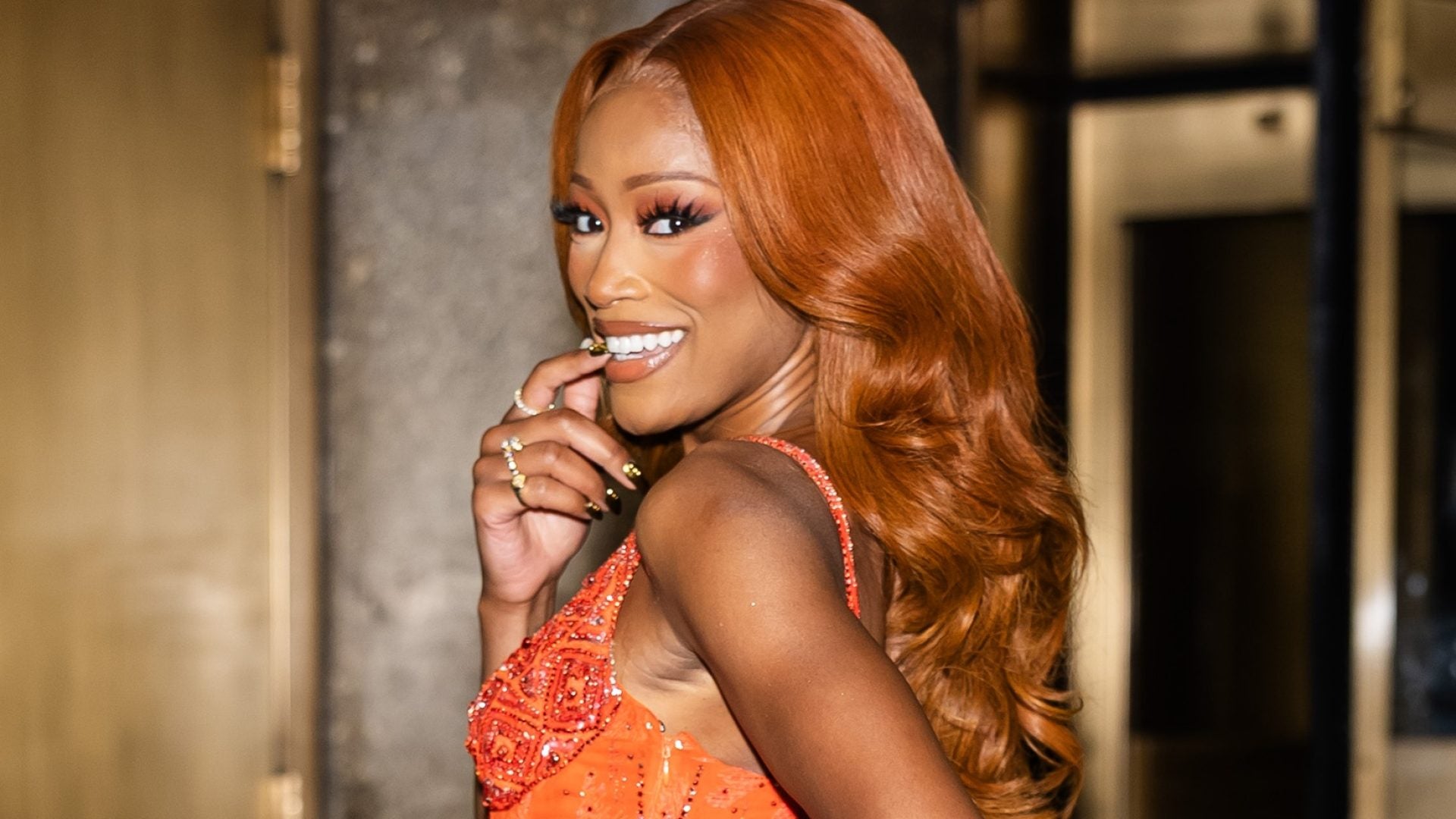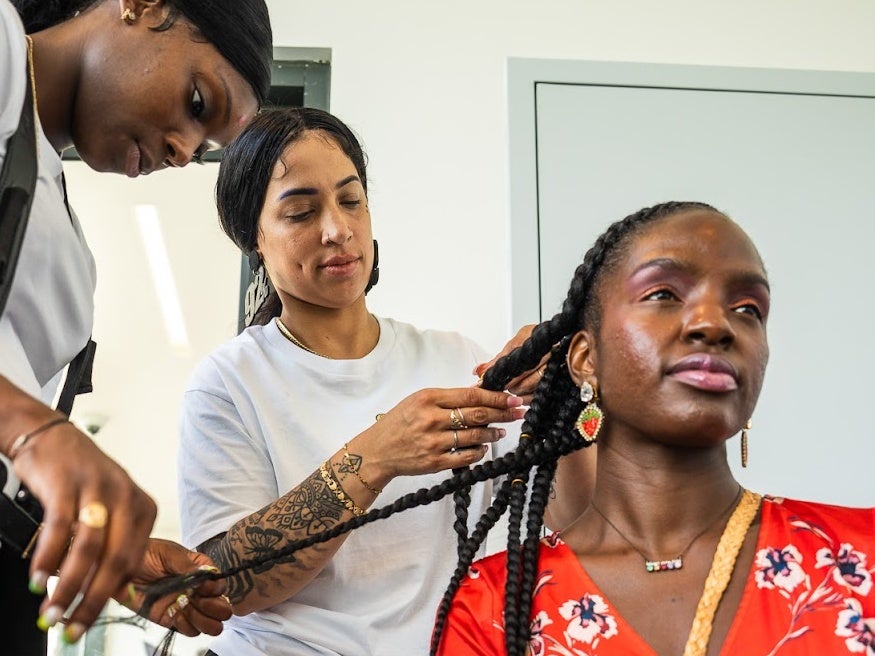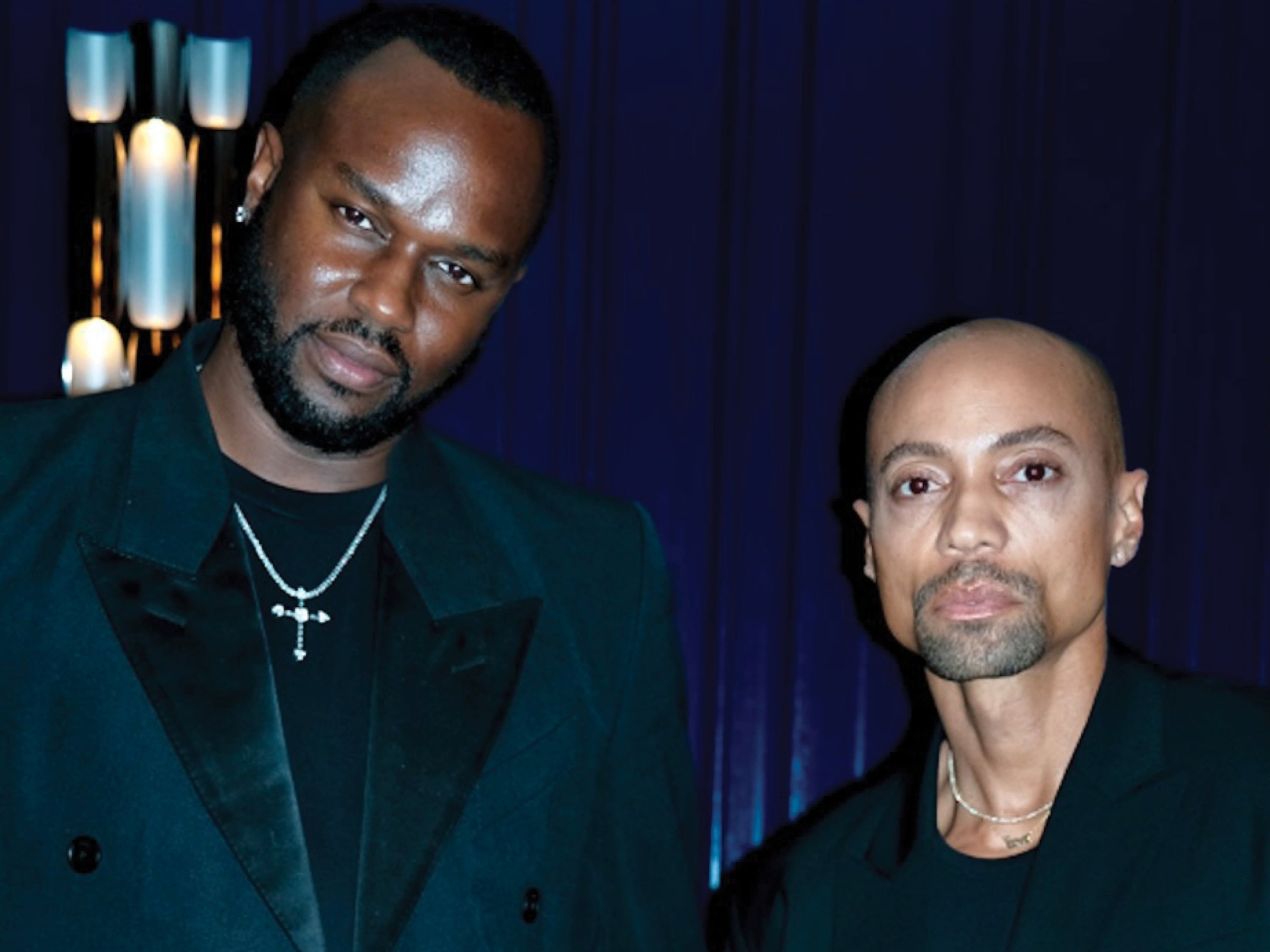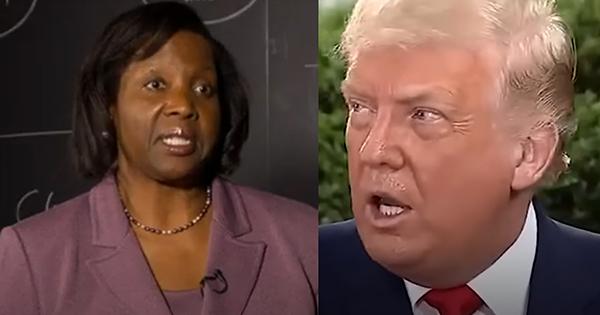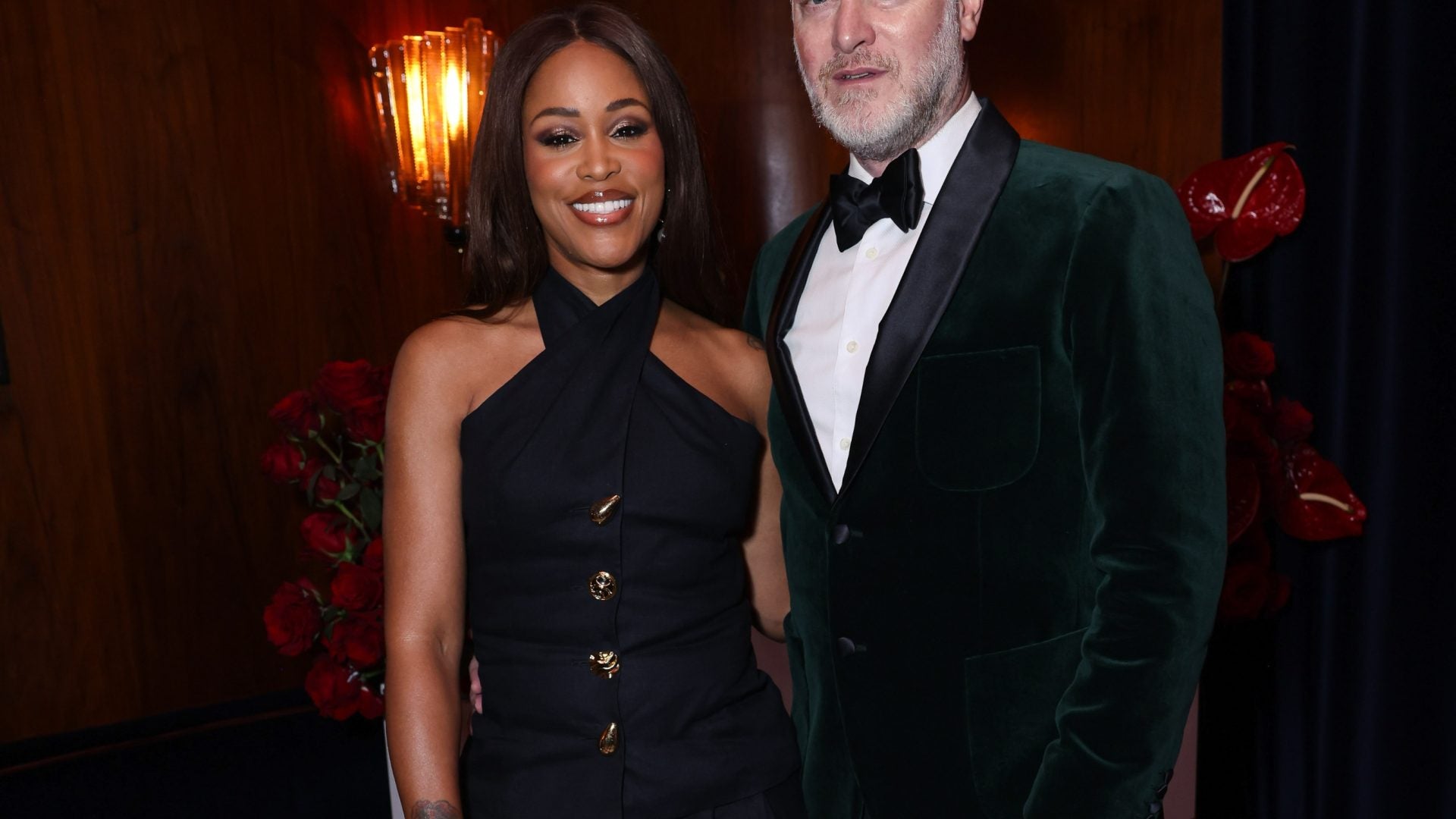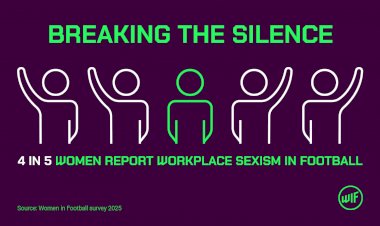Buy Black Forever: A Love Letter To Our Economic Power
On the second floor of Ponce City Market, tucked into a quiet corner above the hum of the food hall, is a storefront that opens into another world. The moment […] The post Buy Black Forever: A Love Letter To Our Economic Power appeared first on Essence.
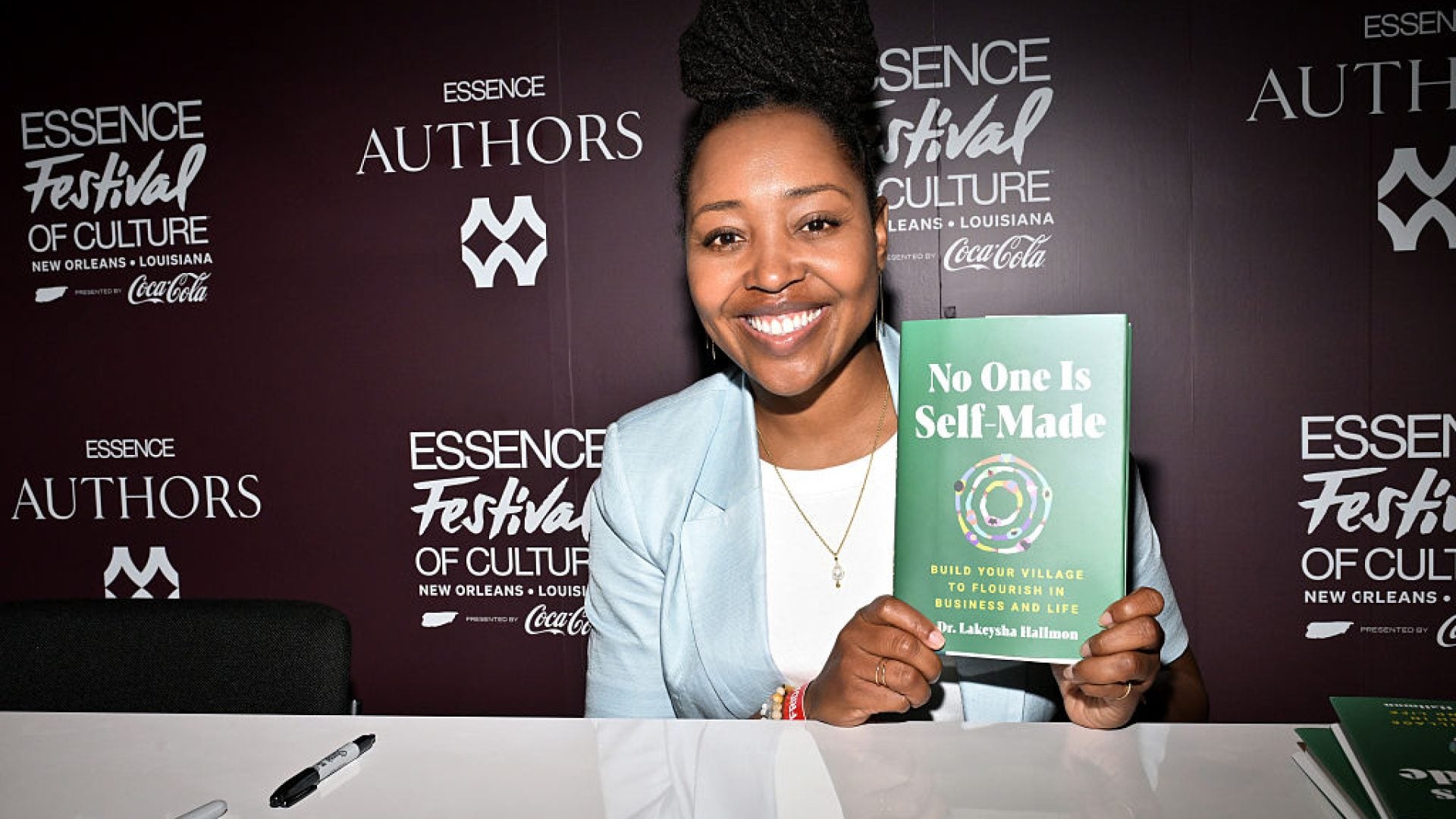
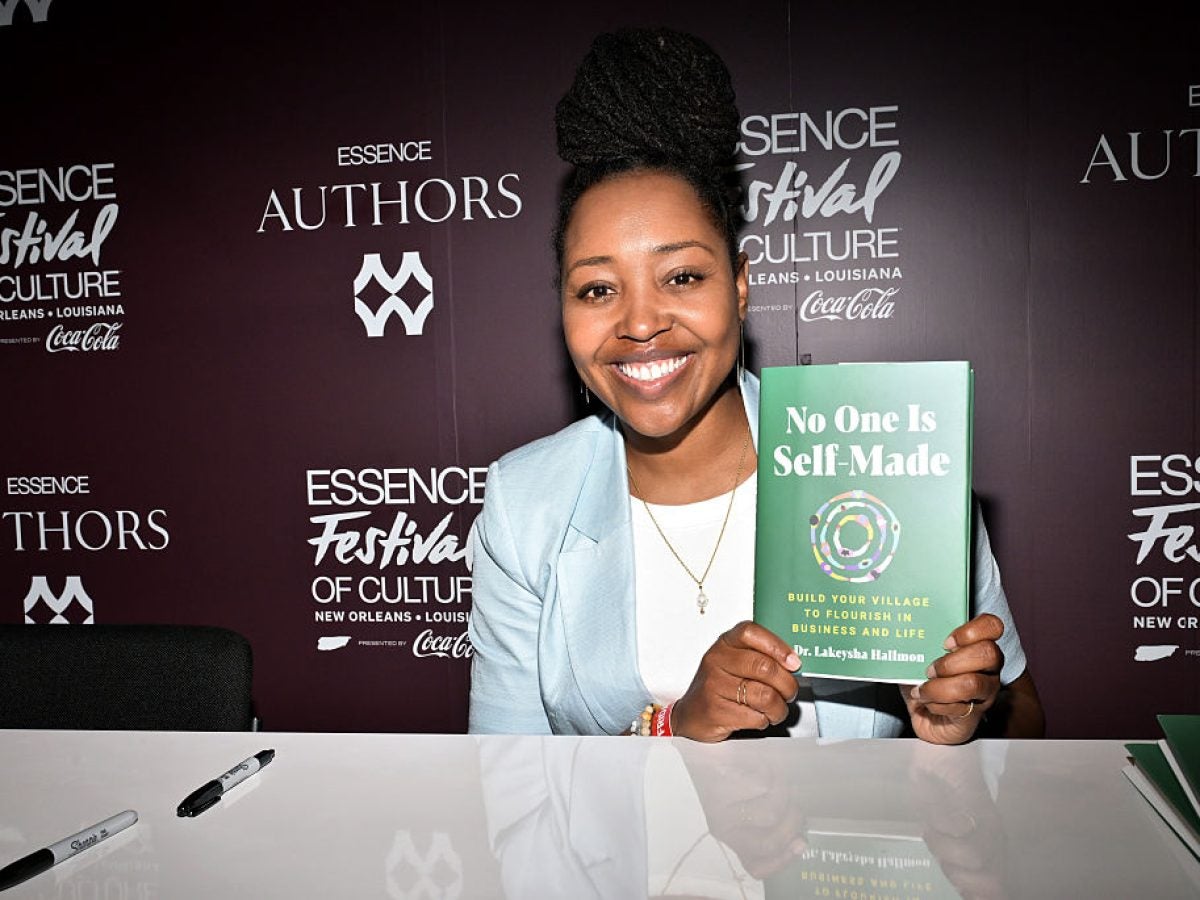 NEW ORLEANS, LOUISIANA – JULY 04: Dr. Lakeysha Hallmon speaks onstage during the 2025 ESSENCE Festival of Culture presented by Coca-Cola at Ernest N. Morial Convention Center on July 04, 2025 in New Orleans, Louisiana.(Photo by Marcus Ingram/Getty Images for ESSENCE)
NEW ORLEANS, LOUISIANA – JULY 04: Dr. Lakeysha Hallmon speaks onstage during the 2025 ESSENCE Festival of Culture presented by Coca-Cola at Ernest N. Morial Convention Center on July 04, 2025 in New Orleans, Louisiana.(Photo by Marcus Ingram/Getty Images for ESSENCE) On the second floor of Ponce City Market, tucked into a quiet corner above the hum of the food hall, is a storefront that opens into another world.
The moment a customer steps inside The Village Retail, the vibe changes. Warm notes of hand-poured candles and rich shea butter wrap around them like an embrace. The walls are alive with art from Aaron Henderson and shelves lined with culturally affirming shirts honoring Toni Morrison, Fannie Lou Hamer, and more. Every corner offers quality wears, jewelry and unique finds that speak to both culture and quality. A striking Support is a Verb wall that stands as both an invitation and a declaration. Selfies, laughter and conversation float through the space as travelers from across the globe run their hands over embroidered sweatshirts, lift jars of body butter to take in their scent, and pause to ask about the makers whose stories live here. There is a moment, almost every time, when their faces soften into a smile and their eyes light up. They take in the décor, the care in every detail, and the unmistakable feeling that they have stepped into more than a store. They have stepped into an experience created with love, intention, and the brilliance of a company that refuses to be ordinary.
In honor of National Black Business Month, I celebrate fellow Black businesses who are striving to build differently. I also return to the charge I first made ten years ago: Support is a verb. Since 2016, I have been on a mission to amplify the presence of Black businesses, drive their sales, and position them to thrive in key markets. My work is not rooted in reaction. It is about love. Not a response to protest or boycott, but from a deep belief that we can shape the economic and cultural experiences we deserve in real time.
Over the years, we have cultivated transformative partnerships with the Atlanta BeltLine, Mastercard, and others. Through these collaborations, we have created marketplaces that transcended commerce to become cultural landmarks, curated nighttime experiences that welcomed thousands of entrepreneurs and conscious consumers into spaces defined by purpose, intention, and joy. These were never just pop-ups. They were sanctuaries of Black brilliance. Our work expanded to include the opening of retail stores, the launch of national incubator programs, and the deployment of grants designed to fuel long-term growth. Each effort serves as a living expression of celebration, where community and commerce are inextricably linked through shared vision and collective empowerment.
We have served more than 1,440 Black-owned businesses and deployed over $1 million in grants and technical assistance. And by 2026, The Village Retail will have access to more than 111 million consumers annually across storefronts located at Ponce City Market in Atlanta with 3.6 million visitors per year, the Google Visitor Experience in Mountain View with an estimated 80,000 annual visitors, and Hartsfield Jackson Atlanta International Airport which served more than 108 million passengers in 2024. These strategic placements position Black-owned brands in some of the most visible and high-traffic retail corridors in the country. These initiatives are a direct reflection of my long-standing charge to the community: Support is a Verb.
Over time, the phrase support Black businesses is often treated like a slogan or, worse, a charitable plea. But I have always seen support as a call to action. Because when we move with intention, when we choose Black businesses not as a trend but as a lifestyle, we create a future rooted in sustained economic power. When we choose us, our communities inherit the economic, cultural, and spiritual residuals of that choice.
Buying Black is not a trend for me. It is a value system. And I have learned that if we only buy Black out of protest or in moments of outrage, our efforts often fade as quickly as the headlines. Not because we do not care, but because convenience reclaims us. Because buying Black is not yet embedded in our everyday lives.
But imagine if it was.
Imagine consistently choosing to buy your skincare or beard care from a Black brand. Hiring a Black graphic designer for your next brand refresh. Booking a Black-owned wellness retreat for your annual reset. Eating at Black-owned restaurants, attending Black-led events, investing in Black-founded startups. Buying books by Black authors. Sourcing produce from Black farmers. Making recurring donations to Black-led organizations doing the work on the ground. These choices are not mutually exclusive. They are intrinsically linked. When our economic power is strong, our communities are better equipped to withstand unprecedented challenges like funding cuts, rollbacks, and systemic shifts. It is all bound together. Every dollar we circulate with intention becomes both a shield and a seed that safeguards our progress while sowing what is yet to come.
We have seen this done before. Tulsa. Rosewood. Durham’s Black Wall Street. We built thriving ecosystems with limited resources and a belief that we could create what we needed from within. In No One Is Self Made, I write about these examples because they remind us of what is possible when we invest in ourselves. Though the efforts of our ancestors were often met with devastating backlash, the truth remains: this is the blueprint.
From the teachings of Marcus Garvey to the insights of Dr. Claud Anderson, economic theorist and author, to the work of modern leaders like Jewel Burks Solomon, entrepreneur and investor, Jaylen Brown, athlete and economic justice advocate, and contemporary practitioners like myself who curate marketplaces, deploy capital, and build national infrastructure for Black businesses, there has been a consistent generational call to build our economic power. Not in isolation, but collectively. Because economic liberation does not just require policy. It requires participation.
For me, this means my nephews inherit more than hope. It means they inherit infrastructure. It means that the entrepreneurs we celebrate today will seed the legacy of tomorrow. But this only happens if we keep choosing us.
To Black-owned businesses, there is a mutual responsibility. Lift as you climb. Let your growth become a light that illuminates the path for others. Mentor generously. Invest back into the community with intention. Collaborate with purpose. Circulate your resources in ways that nourish the very communities that shaped you, and leave breadcrumbs so others may find the way forward.
With that mutual responsibility comes a charge: meet this moment. Deliver products and services that embody the highest standards of quality and care. Build operations that are not only sustainable but scalable. Create work environments where dignity is woven into the culture. Our collective future depends on the strength, consistency, and brilliance of how we choose to show up for ourselves and for one another.
Buying Black forever means choosing community over convenience. It means rejecting rugged individualism in favor of collective wealth. It means consistently and unapologetically showing up with love, intention, and action. One of my favorite truths is this: love should look like something. And in this call to action, love looks like us choosing each other, again and again.
Our economic liberation depends on it.
The post Buy Black Forever: A Love Letter To Our Economic Power appeared first on Essence.










